CEO’s Message on Sustainability – Preservation of Trust that has been Built and Fortified over the Years
Dear Stakeholders,Listed on the Singapore Exchange since 1969, Haw Par is one of the earliest established public companies in Singapore. Central to our management doctrine in the day-to-day running of our business, is our uncompromising preservation of trust that has been built and fortified over the years. The conduct of business in a proper, sustainable, accountable and ethical manner thus comes second nature to our Board and Management. We are pleased to share with our stakeholders a perspective of our sustainability efforts through our sustainability reports.
Wee Ee Lim
President and CEO
Haw Par Corporation Limited
CEO’s Message on Sustainability – Preservation of Trust that has been Built and Fortified over the Years
Dear Stakeholders,
Listed on the Singapore Exchange since 1969, Haw Par is one of the earliest established public companies in Singapore. Central to our management doctrine in the day-to-day running of our business, is our uncompromising preservation of trust that has been built and fortified over the years. The conduct of business in a proper, sustainable, accountable and ethical manner thus comes second nature to our Board and Management. We are pleased to share with our stakeholders a perspective of our sustainability efforts through our sustainability reports.
It is noteworthy that Haw Par is not a single-business entity. With our key businesses focused on Healthcare operationally and in Investment by asset base, along with management and control being based in Singapore, we opine that a report revolving the activities in Singapore of these two business divisions will provide a representative picture of the Group’s endeavours on business sustainability.
With a solid asset backing through our equity holdings coupled with our reserves accumulated from our earnings, we have a strong balance sheet to make substantial investments. One of the sources of growth pursued by Management is business acquisition. Drawing on our core competence, we desire acquisitions to which we would be able to add value. Investment consideration takes into account a holistic view of criteria under the stewardship of the Investment Committee that ensures multi-faceted parameters of an investment have been evaluated. We believe our disciplined and calculated approach to investing would enable us to continue to generate shareholder values.
In the operation front, Tiger Balm, with a heritage of over 100 years behind the brand, continues to gain popularity in its key markets while more products are being introduced across the geographies, as demand emanates from diverse segments of consumers experiencing muscular aches and pains for different reasons. Long trusted for its quality, safety and efficacy to our consumers, the trust in the equity of the brand is non-negotiable as we safeguard against any possible brand equity erosion in a growing global consumer healthcare market where competition is a given trait.
The pharmaceutical industry is regulated by health authorities the world over and by international conventions, with increasing stringency imposed on product registrations, manufacturing, quality assurance and marketing authorisations. While these complicate processes, lengthen product development cycles, push back product launches and increase costs, we are closely guided by governance and compliance requirements that are inherent in the industry and our internal processes, e.g. GMP and ISO certifications. This ultimately translates to benefitting our consumers’ health and wellbeing with superior products through our continual product development and efforts toward wider presence and deeper market penetration.
As Tiger Balm’s brand equity is synonymous with the general health and wellbeing of our consumers, we promote sports as one of its health enablers as well as a means to serve the community. Tiger Balm partners distributors to bring sports to everyone from International Yoga Day celebrations to trail marathons and various sporting events across our markets.
In Singapore, Haw Par has adopted the Singapore Disability Sports Council (SDSC) as our charity partner since 2015. As the national sports body for para sports, SDSC provides opportunities for people with special needs to participate in sports at both recreational and competitive levels. Our annual sponsorship over the years has contributed to the growth of para sports in Singapore, enabling more to live healthier, active lives.
We are where we are today because of our staff. We recognise our employees as our most vital assets and a key stakeholder group. We are committed to fostering a fair and equal opportunity workplace, one that is built on merit and based on progressive HR practices, by hiring, assessing and rewarding employees on merit, skills, experience and ability to perform the job. Just as we promote health and wellbeing of our consumers, so too, we care for our employees’ physical and mental wellbeing.
To address potential future concerns from our stakeholders, we have commenced efforts to integrate our sustainability principles across our supply chain. Alongside our five-year sustainability roadmap, we have begun to look at practical ways to meet the evolving concerns of our various stakeholders.
Looking forward, we seek to step up our reporting boundaries in the coming years to inform our stakeholders of our endeavours and commitments concerning the material issues the Board and Management have identified.
Wee Ee Lim
President and CEO
Haw Par Corporation Limited
Contributions to United Nations Sustainable Development Goals
Delivering health and wellness to communities in which we operate is the focus of our initiatives to contribute to the society. We continue with our heritage of providing Tiger Balm products to those in need.
We believe that no one should be constrained from leading an active life, and sport is a force for wellbeing and empowerment. Since 2015, Haw Par has been supporting athletes from Singapore Disability Sports Council. Our annual contribution of $120,000 to SDSC benefitted the organisation in key areas of development, such as coaching, organisation of local competitions, participation in overseas competitions, nurturing young talent and education programmes, especially Boccia – our adopted sport, where a new generation of young athletes are beginning to win recognition regionally and internationally.
We recognise that healthy communities do largely depend on a healthy planet, which is in turn dependent on healthy ecosystems with rich biodiversity. Haw Par is a supporter of the United Nations Decade on Biodiversity 2011-2020 and our Blue Mission at Underwater World Pattaya aims to inspire, educate, conserve. As the tiger and leopard, listed among the most endangered species on Earth, are the namesakes of Haw Par and our company founders, we have been sponsoring the Malayan Tiger Exhibit and Leopard Exhibit at the Night Safari and the Singapore Zoo since 1995 and 1986 respectively.
The United Nations adopted 17 Sustainable Development Goals in 2015 to achieve sustainable development for all by 2030. Haw Par contributed to five of the goals.
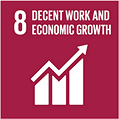
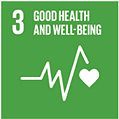
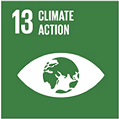
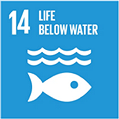

Sustainability Governance
Board Statement
The Sustainability Steering Committee (“SSC”), consisting of senior management and led by the Chief Executive Officer (“CEO”), evaluates sustainability efforts and priorities within the Group. The SSC, chaired by the Group’s Chief Sustainability Officer (“CSO”), reports through the CEO to the Board, which has considered sustainability issues as part of its overall strategy formulation and has determined the ESG factors identified as material to the business of the Group. The Board oversees the management and monitoring of these ESG factors.
All Board members have also undergone training on sustainability matters to equip themselves with the right knowledge to lead the Company towards sustainability.
Risk Management
While the Group’s current risk management process already takes into account overall business risks, the Risk Management Committee also keeps abreast of specific emerging risk trends such as climate-related risks. In 2022, the SSC formed the Climate Change Sub-Committee, chaired by the CSO and comprising senior representatives of business divisions, as well as corporate functions including Chief Financial Officer, Company Secretary, General Managers (Marketing), General Manager (Manufacturing), Head (Quality & Regulatory Affairs), and Corporate Communications/Investor Relations Manager, to monitor market and regulatory related developments on climate reporting requirements in respect of their fields of business that are in accordance of the Group’s Risk Management Policy and consistent with the recommendations of TCFD.
On a biannual basis, the SSC Chair issues a questionnaire to the Climate Change Sub-Committee members as a guide for regular review of climate related potential impact on the Group’s operations and business, and initiates discussions on issues with potential impact if any. The SSC submits identified, assessed and treated climate related risks to the Risk Management Committee for review via the Risk Management Annual Review exercise. The Risk Management Committee reports to the Audit and Risk Committee and the Board twice a year on risk management activities and attestation undertaken.
In 2023, the SSC conducted an initial risk assessment concerning climate-related risks and their potential impact. The assessment was reviewed by the Risk Management Committee and “Climate-related Risks” was entered into the Group’s Risk Register for annual review. The Audit and Risk Committee and the Board were updated about Climate-related Risks being added as a new risk under the Enterprise Risk Management framework. Disclosure of climate-related risks and opportunities will be a consideration for our future reports, following a more extensive and in-depth risk assessment.
The Risk Management Committee continues to assess the materiality of ESG and related risks to the Group as the ESG landscape continues to evolve.
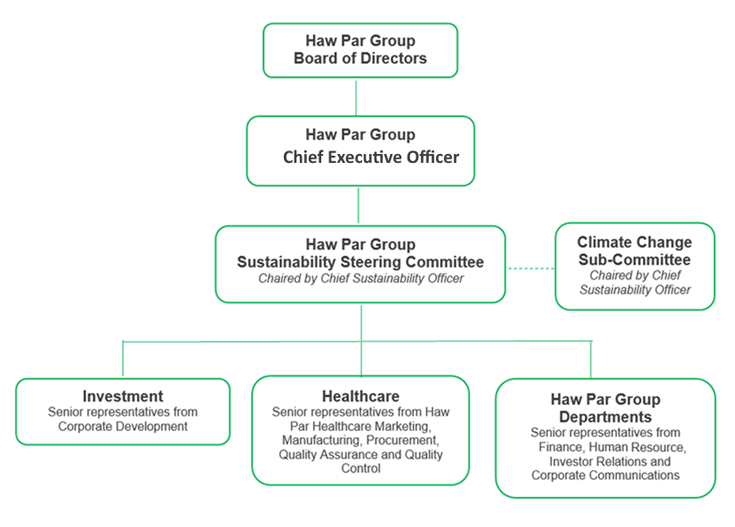
Figure 1: Haw Par’s sustainability governance structure
Materiality Analysis and Material Issues
The Board of Directors and Management validated the material topics for the 2023 report and determined that the material topics identified in our 2022 Materiality Assessment are still relevant to the Company’s business and stakeholders in 2023. Additionally, “Greenhouse Gas (GHG) Emissions” was identified as a new material topic to be tracked separately due to increasing expectations from regulators to disclose such data.
Our materiality assessments are performed periodically to reassess the relevance of our material topics. Our first materiality assessment was conducted in 2017, and a refreshment was carried out in 2022. Our materiality assessments are aligned with the GRI standards and supported by background research on peers and industry trends. They serve to facilitate our identification of material ESG topics significant to our businesses and stakeholders. We worked with an independent consultant who guided us through the GRI four-step materiality assessment approach – identification, prioritisation, validation and review. This process included reviewing our strategy and policy commitments, assessing risks and regulatory requirements, and engaging with internal and external stakeholders to strategically focus on the relevant material topics that have a high level of importance to the business in the coming years.
In total, we identified and prioritised the 7 material ESG topics in 2022 and added “GHG Emissions” as an additional topic in 2023, listed below under Tier 1 and Tier 2. These ESG topics are relevant to Haw Par’s Healthcare and Investment businesses. We intend to review these material topics on a regular basis, particularly when there are significant changes in the Company's business environment and strategic outlook.
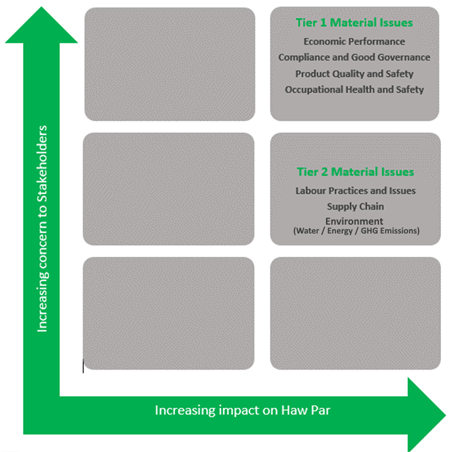
Figure 2: Haw Par’s materiality matrix
Stakeholder Engagement
Haw Par’s approach hinges on the commitments to our key stakeholders who are identified based on the significance of their respective impacts on the organisation. We believe communication with relevant stakeholders is vital to the long term success of our businesses.
The basis for whom is considered a key stakeholder is understanding our value chain and thus determining who Haw Par has an impact on, and which stakeholders have an impact on our businesses.
| Our Key Stakeholders | Forms of Engagement | Key Topics |
|---|---|---|
| Business Associates |
|
|
| Employees |
|
|
| Communities |
|
|
| Regulators |
|
|
| Investors |
|
|
| Consumers |
|
|